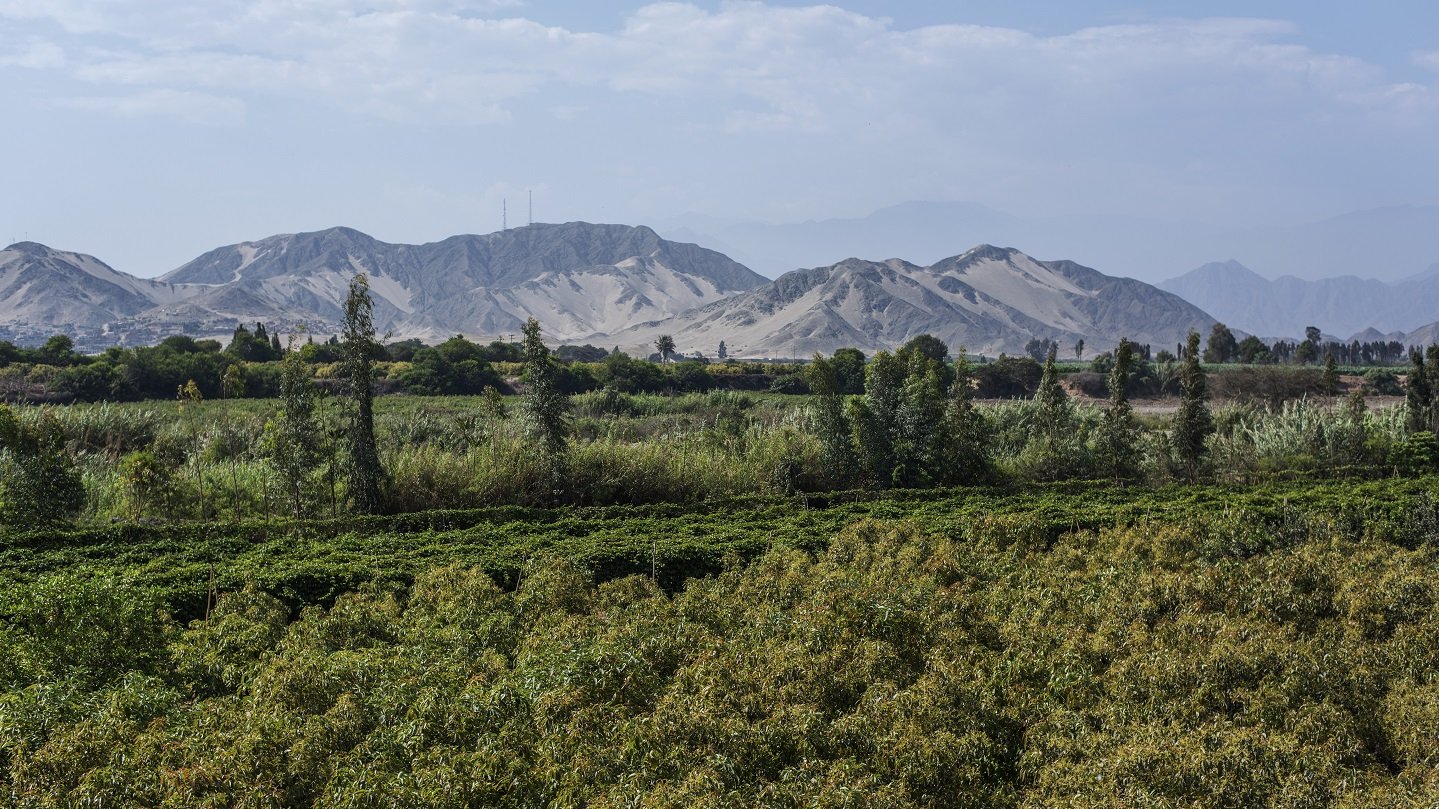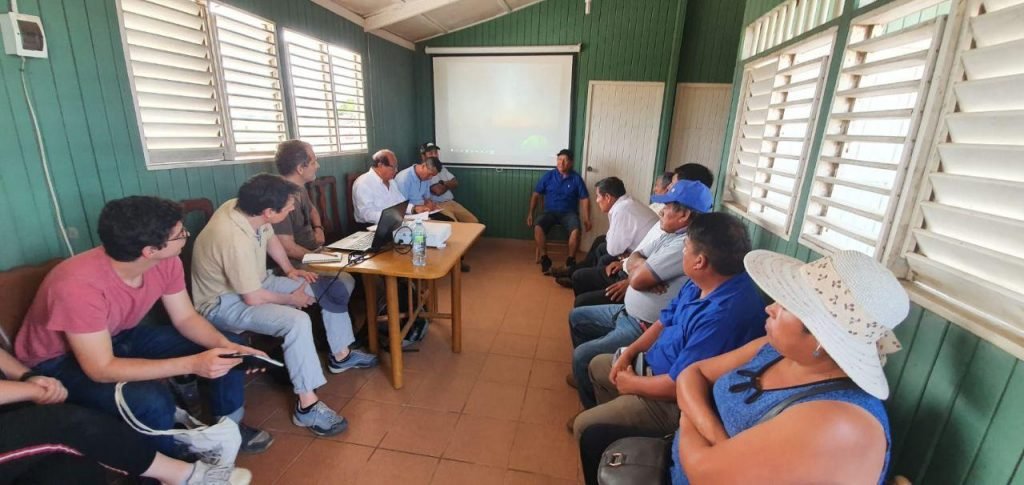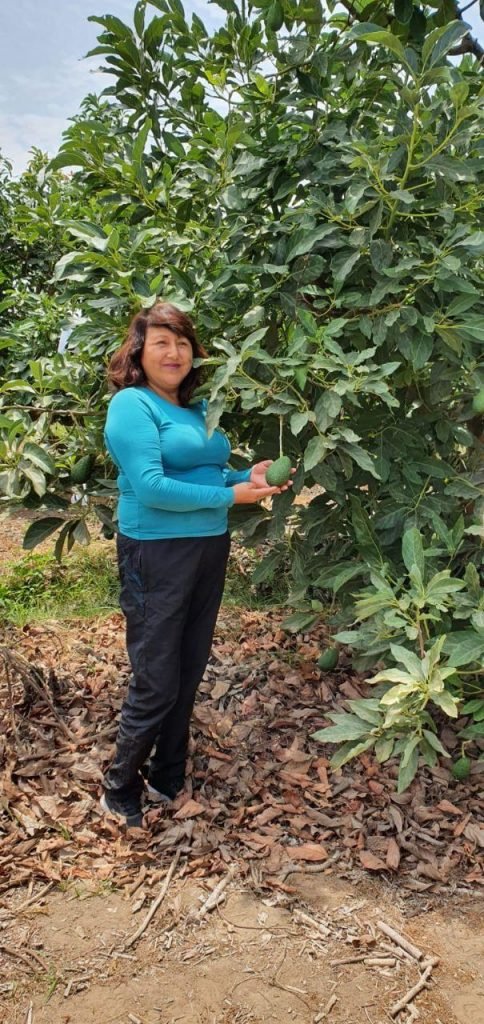COVID-19 and Peruvian Avocados: Growing Together Through Hardships
In this update from Eunice Jijon Jarquin and Alyssa Melendez, learn about Equal Exchange’s fair trade avocado partnership with La Grama in Peru, and how co-op farmers are adapting to the challenges of an ongoing global pandemic.
It’s rare to find a person who doesn’t love avocados, or who hasn’t assisted in making avocados a coveted, yet accessible fruit. In 2001, the US per capita avocado consumption stood at around 2.5 lbs, or about five medium-sized avocados per person. That number tripled to 8 lbs per person in 2018 – that’s about 15 medium-sized avocados. This growing demand motivated Equal Exchange to build an alternative to the conventional avocado supply chain – one that places small farmers at the forefront and combats the need for large productions and unequal power structures.
Although around 80 percent of avocados are imported from Mexico, Peru gained recognition in 2018 as the second largest exporter to the United States (USDA ERS). In 2018, Equal Exchange partnered with La Grama to bring organic, fair trade Peruvian avocados to the United States and develop a year-round avocado program that stretched supply into May and June. La Grama is a Peruvian company that provides essential services for small-scale farmers, such as technical assistance, providing funds for certification fees, and creating access to the global market. La Grama and Equal Exchange hold similar goals of building a more sustainable and just food system that is conscious of the role of small farmers in the global marketplace.
Photos, left to right: La Grama team speaking with avocado farmers; a member of the small farmer cooperative at their avocado farm.
La Grama had been working with organic avocados since 2008, and was inspired by the growing demand for fair trade produce, including bananas. Bananas are grown in a region just north of the avocado growing region in Peru. Through fair trade bananas, La Grama saw the benefits of this model for the local community. In 2017, they recognized this growing global demand as an opportunity to include small-scale organic, fair trade Peruvian avocado farmers in that market share.
Fair trade offers an alternative to the conventional avocado market, in which farmers have been subject to the whims of large plantations and intermediaries. Under these conventional standards, small-scale avocado farmers cannot compete with large-scale producers, who are able to afford a greater amount of land and water for increased production and yields. In comparison, according to the fair trade model, for every kilo of fruit sold, farmers are paid a fair trade premium in addition to the price of the fruit. The small farmer cooperative that La Grama works with was established just three years ago, and so far, the fair trade premium has served to strengthen the organization’s administration and fund technical assistance for farmers. Once the co-op is able to build a larger premium fund, it will go towards democratically selected local community projects. By prioritizing the management needs of the co-op, farmers have been able to focus on cultivating trade relations and becoming a resource pool for other farmers. Having a solid base has been essential in adapting to the new landscape that COVID-19 has shaped.
Peru is one of the worst-hit countries by COVID-19 in Latin America, and currently has the second-highest number of cases in the region. Despite the country’s lockdown, the agricultural sector has continued to operate. There are more challenges across the supply chain, including new protocols for safety precautions, social distancing, transportation, processing at the packhouse, and curfews that reduce working hours. Harvest planning has also been heavily affected by travel limitations for workers. Diego del Solar, Co-Founder of La Grama, says,
“Avocado farms located in relatively isolated places, where people have to travel from their hometowns to go to work there, have had big problems getting harvested on time.”
These challenges have required farmers to adjust to a new normal, and La Grama is committed to supporting these farmers through this transition.
La Grama’s technical team has always been closely involved in the quality and safety of farmers and the products they produce. COVID-19 has reinforced this support: La Grama is providing training on proper hand washing techniques, providing masks, and ensuring social distancing between workers. All of these protocols had to be implemented rapidly to maintain the safety of all of the workers. Nevertheless, del Solar explained that during the first month of the lockdown, agricultural exports from Peru increased by 9% compared to the same period last year, which is largely explained by avocado exports.
The expanding year-round demand for avocados has provided an opportunity for the Peruvian avocado industry to fill in the gaps of supply. La Grama recognizes the potential for their avocado program and are working towards increasing their number of farmers and available volume. New farmers are joining the program each year, because of the various services and opportunities that La Grama offers, especially given their dedication and reliability. Several exporters have a business model of hopping from one product to another, pursuing new trends each time. La Grama chose a different strategy, de Solar sys, which is to work with the same products year after year,
“...deepening our knowledge and understanding of the industry, as well as our relationships with our farmers. That approach gives farmers the confidence they need to keep going forward and look at the future of avocados with optimism, and that allows us to grow consistently. ”
Small-scale farmer avocado producer partners from Adapo in the region of La Libertad, Peru.
Equal Exchange has also continued to deepen its knowledge and understanding of the industry, allowing us to double our Peruvian avocado volume this year. This is in large part due to our fresh produce team’s efforts to create the essential tools and resources to educate customers on best handling practices and sharing farmers’ stories. It takes a great deal of dedication and time to create a successful program. Both partners found each other at a crucial time in their development – Equal Exchange sought a partner who could complement our Mexican off-season, and La Grama looked to export organic, fair trade avocados to the United States. Together, both companies have proven successful in their efforts.
During these trying times, farmers continue to show their resiliency. Through the hardships of the pandemic, their efforts keep supply chains moving and keep our families fed. We are extremely grateful to have partners like La Grama, who are committed to uplifting small farmers, and we look forward to supporting their growth and mission for years to come.





